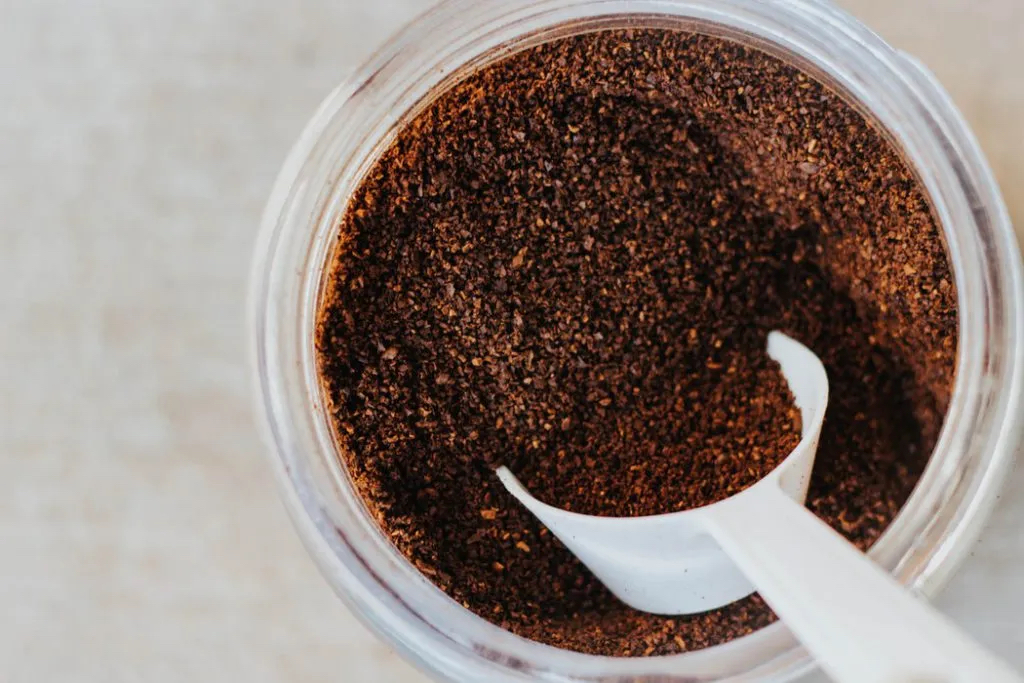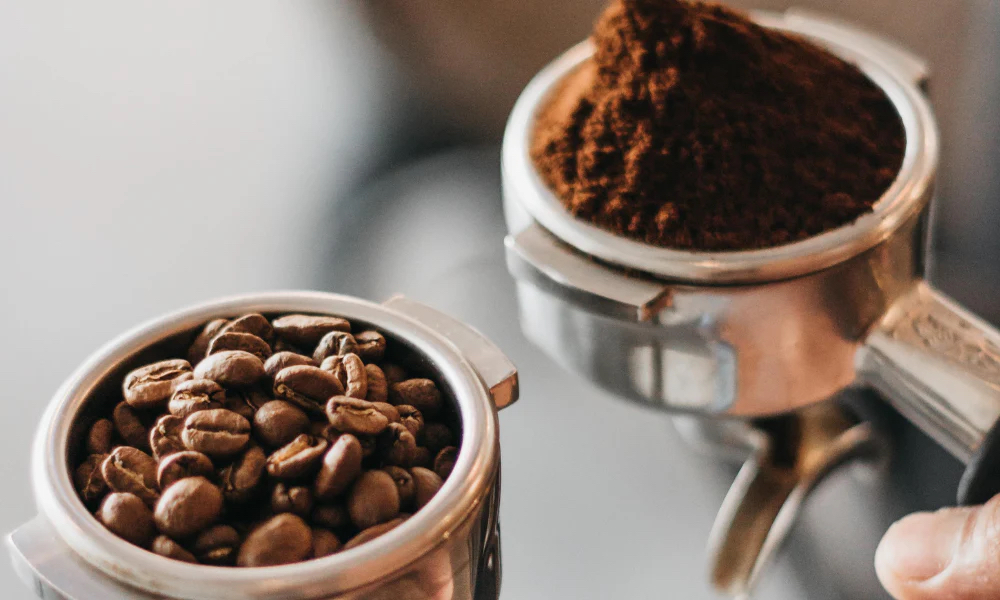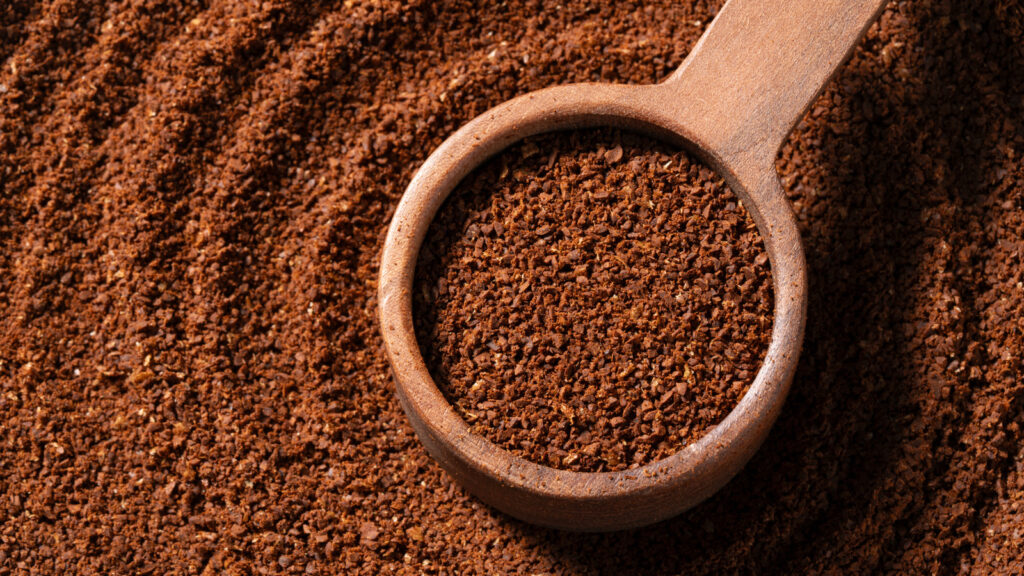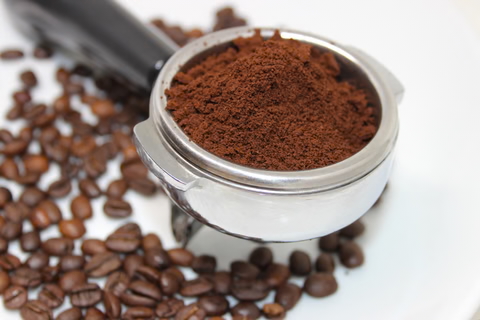If you’ve spent any time around serious coffee folks—or ventured into the depths of Reddit’s r/Coffee—you’ve probably heard one universal truth: “Freshly ground is best.” The idea is that once coffee is ground, it starts losing its flavour faster than you can say “Arabica.”
But is pre-ground coffee really that bad? Or is it just getting an unfair roast?
Let’s take a deeper look at what happens when coffee is pre-ground, what the pros and cons are, and whether it’s still possible to enjoy a good cup without grinding beans yourself.
What Happens When You Grind Coffee in Advance?

Here’s the deal: coffee is at its peak just after grinding. Once the beans are broken down, the surface area increases dramatically, making them more vulnerable to oxygen, moisture, and light—all enemies of flavour.
The most important chemical process to know? Oxidation. It starts the moment you grind your beans and leads to the breakdown of those delicate aromatic compounds that make coffee smell so amazing.
So yes, pre-ground coffee does lose flavour faster than whole beans.
Why Coffee Enthusiasts Prefer Fresh Grinding

Fresh grinding isn’t just a flex. It actually makes a noticeable difference in your cup—especially if you’re brewing using methods like pour-over, French press, or espresso.
Here’s what grinding fresh offers:
- More flavour and aroma: Freshly ground beans contain volatile oils and gases that contribute to complexity, sweetness, and that café-like aroma.
- Customisable grind size: Different brew methods need different grind sizes. If you’re brewing espresso or French press, pre-ground coffee often won’t cut it.
- Better extraction: The right grind size ensures your coffee is neither under-extracted (sour) nor over-extracted (bitter).
When your grind matches your method, the result is cleaner, more balanced coffee.
But Wait—Is Pre-Ground Coffee All Doom and Gloom?
Let’s be fair: pre-ground coffee exists for a reason, and not everyone has the time, money, or counter space for a burr grinder.
And guess what? With the right care, pre-ground coffee can still taste good—especially if you’re using it within a few weeks and storing it properly.
Plus, today’s specialty roasters are doing a better job of packaging ground coffee in nitrogen-flushed bags or vacuum-sealed containers, slowing down oxidation and locking in freshness longer than you might expect.
So while it won’t compete with beans ground seconds before brewing, pre-ground coffee isn’t the enemy. It’s just not the overachiever of the coffee world.
When Is Pre-Ground Coffee Totally Fine?
There are a few scenarios where reaching for pre-ground coffee makes total sense:
1. You’re Brewing with a French Press or Drip Machine
These methods are generally more forgiving with grind size and extraction. As long as the pre-ground coffee matches your method (coarse for French press, medium for drip), you’re good to go.
2. You’re Traveling or Camping
Let’s be honest—no one wants to lug a grinder on a hike. A sealed pouch of ground coffee + an AeroPress = trail magic.
3. You’re Just Getting Into Coffee
If you’re new to specialty coffee, there’s really no need to buy every piece of gear at once. Starting with good-quality pre-ground coffee lets you explore flavor profiles first. Grinding can come later.
Tips to Make Pre-Ground Coffee Taste Better

Alright, so you’ve got a bag of ground coffee. What now?
Here’s how to maximise freshness and flavour:
- Buy from reputable roasters: Choose small-batch or local roasters who grind to order.
- Check roast and grind date: The closer to roast and grind date, the better. Avoid coffee with no clear timestamp.
- Store it right: Keep your coffee in an opaque, airtight container away from light, heat, and moisture. Don’t leave it in the bag or fridge.
- Use it fast: Aim to finish your bag within 1–2 weeks of opening.
And if you’re really really serious, consider buying a grinder down the line. A decent burr grinder will run you less than a fancy pair of sneakers, and it’ll make a world of difference.
Common Myths About Pre-Ground Coffee

Let’s clear up a few misconceptions about pre-ground coffee:
❌ Myth 1: “Pre-ground coffee is stale.”
Not always true. If it was ground recently and stored well, it can still taste great. But yes, it loses freshness faster than whole beans.
❌ Myth 2: “Only bad coffee comes pre-ground.”
Also false. Many specialty roasters now offer pre-ground versions for convenience without sacrificing quality. It’s the supermarket brands that often fall flat, not because they’re ground—but because the beans weren’t great to begin with.
❌ Myth 3: “You can’t make good espresso with pre-ground.”
Tricky, but not impossible. Espresso demands precision grind size, and most pre-ground coffee isn’t fine enough. But if it’s ground specifically for espresso and used quickly, it can work in a pinch.
So… Is Pre-Ground Coffee Really That Bad?
Here’s the final sip: pre-ground coffee isn’t a crime against coffee, but it does come with trade-offs.
If you’re chasing that perfect cup—the kind that hits you with flavour, balance, and aroma—then grinding your beans fresh is absolutely worth it. But if convenience, budget, or lifestyle make grinding impractical, pre-ground coffee is a totally valid choice.
In fact, for everyday drinkers using a drip machine or French press, the difference might not be as huge as coffee purists make it sound. What matters more is bean quality, roast level, and freshness—ground or not.
The Bottom Line from a Barista
As someone who’s worked behind the bar and brewed hundreds of cups, here’s my honest take: Pre-ground coffee is like reheated leftovers. It’s not quite the same as fresh—but it’s still delicious when done right.
If it helps more people enjoy better coffee at home, I’m all for it.
But once you grind your own beans and taste the difference? Yeah… you probably won’t go back.
Here’s a FAQ section you can use for your “Is Pre-Ground Coffee Really That Bad?” article. It addresses likely reader questions, using a barista’s perspective.
Frequently Asked Questions (FAQ)
1. How does pre-ground coffee lose its flavour?
Once coffee beans are ground, their surface area increases dramatically, which lets oxygen, moisture, and ambient odors start degrading the oils and aromas. Things like volatile flavour compounds escape, so the coffee tends to taste flatter, duller, or more stale over time compared to freshly ground beans.
2. Is pre-ground coffee always bad, or just worse than freshly ground?
“Bad” is overstating it—pre-ground coffee isn’t useless. It’s just less ideal if you’re chasing peak freshness. For many traditional brew methods (like drip or French press), a decent pre-ground coffee used relatively soon after opening and stored well can still make a satisfying cup. The difference becomes more obvious in high-precision methods or among people with sensitive palates.
3. How long does pre-ground coffee stay good after opening?
If stored properly, you’ll get your best results within one to two weeks after opening. After that, flavor decline accelerates. Keeping it sealed, dry, away from light and heat helps slow that deterioration.
4. Can I improve the taste of pre-ground coffee?
Yes. A few tricks help:
- Store it in an opaque, airtight container.
- Only open the bag when you’re about to use it.
- Use slightly finer or coarser grind (depending on your brew method) to balance extraction.
- Use clean, filtered water and correct water temperature. Sometimes poor brewing exaggerates flavor loss more than grinding timing.
5. When is it okay or preferable to use pre-ground coffee?
Pre-ground makes sense when convenience is a priority—like travelling, camping, or if you don’t have a grinder. It’s also fine for everyday drinking, particularly when you want strong flavour without fuss. Just manage expectations: the taste won’t be as bright or nuanced as freshly ground beans, but it can still be enjoyable.
6. Does the roast type or bean origin make a difference in how well pre-ground coffee holds up?
Definitely. Darker roasts tend to mask some of the staleness because the roast flavours dominate; lighter roasts show off freshness (or its loss) more clearly. Also, specialty beans with distinct single-origin flavour profiles suffer more noticeable loss when pre-ground. Cheaper or blended beans often already have less subtlety, so the difference is less dramatic for many drinkers.
7. If I want better quality without grinding, what should I look for when buying pre-ground?
Look for recently roasted/pre-ground packages, smaller bag sizes, sealed packaging (valve bags help), and trusted roasters who disclose roast and grind dates. If the package mentions for which brew method (French-press, espresso, drip), even better—it shows more care. Also try samples or small bags first to find a brand whose grind, roast, and taste you like.

Leave a Reply